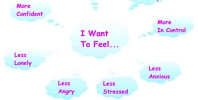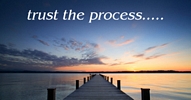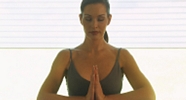Americans, on average, do a lousy job of sleeping.
According to guidelines provided by the National Institutes of Health, the average adult requires 7 to 9 hours of sleep nightly in order to stay healthy and to work at peak efficiency. Unfortunately, a large percentage of Americans either can't pull the needed time together every night, or can't stay asleep long enough to meet these sleep requirements.
While results vary from poll to poll, recent findings by the National Sleep Foundation show that nearly one quarter of all Americans fail get a full night of sleep on a regular basis. According to a recent (March 2010) sleep and ethnicity study by the NSF, nearly 25% of people polled say that their work schedules don't allow them to get enough sleep.
Furthermore, over 30% of respondents claim that their quality of life has been affected in some negative way because of their sleepiness.
Also troubling is the number of people who rely on over the counter sleep aids to fall and stay asleep every night. Close to 9% of people polled claim to use sleep medication on a regular basic to help them get to sleep. A similar percentage, (7%) admit to using alcohol as a way to help fall asleep.
It's not a secret that pharmaceutical companies have a lot to gain from the poor sleep habits of Americans. It is estimated that over $2 billion dollars is spent annually in the U.S. on over the counter sleep aids alone.
But are these chemical 'helpers' really necessary? Taking into consideration the potentially addicting qualities of sleep aids and the potential health dangers they present, sleep aids may be more damaging than helpful in the long run. As for alcohol, it may help some people fall asleep but as the alcohol is metabolized into sugar that can decrease sleep as well.
We understand that sleep is important to us but how do we balance that importance against living a healthy lifestyle and maintaining a good balance with our jobs, relationships and overall quality of life?
The first step may be as simple as indentifying how well you sleep to begin with. While it might seem counter-intuitive, 'how' you sleep every night may be even more important than 'how long'.
For years troubled sleepers have been paying big bucks and heading off to sleep research centers to find some answers. In these centers, they are hooked up to brainwave monitors and the cycles and types of sleep they experience during the night is captured and analyzed in order to identify possible sleep solutions.
These tests measure the number of times that subjects wake during the night, how long they spend dreaming, how long they spend in deep sleep and how long in light sleep cycles. This information is then combined to provide a more holistic overview about the quality of sleep and can be used to identify ailments or other conditions that may be contributing to sleep prevention.
But for the average person who doesn't need or can afford a few nights in a sleep center, a powerful, new option is available - the Zeo Sleep Coach. While the Zeo makes no claims to be a medical device or to even help diagnose ailments, it does provide users with an interesting and useful level of sleep feedback which can be invaluable in getting a baseline on how well one sleeps during the night.
The Zeo Sleep Coach includes a bed-side sleep base unit that looks and acts like a high-tech alarm clock. It also houses a comfortable and light-weight sensor headband that a sleeper wears while they sleep. During the night the sensor measures the brainwaves of the sleeper when they awake, are dreaming (in REM sleep), are lightly sleeping or deeply sleeping. This information is beamed wirelessly to the bedside unit and is combined to create a composite score (called a ZQ) that rates the overall quality of the sleep for that night.
The bedside unit also allows the sleeper to review the length of time it took them to fall asleep, how many times they awoke during the night and the length of time they spend in various stages of sleep. This sleep data is also stored on a memory card which can be removed from the bedside unit and inserted into a personal computer. From here the data can be uploaded to the sleepers private Zeo account (you can learn more at the link below ) where it can be combined with a sleeper's previous data. Apart from tracking sleep data, the site also provides access to sleep advice as well as personalized coaching for visitors.
Not sleeping well at night can cause misery. However, as the Zeo tag line puts is 'The more you know, the better you sleep'. If you're having trouble falling or staying asleep I recommend that you take a look at how Zeo may help you.



